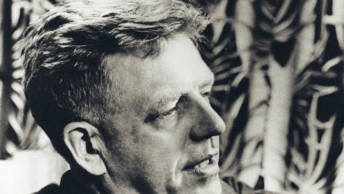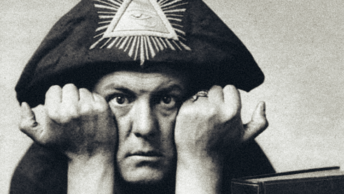I have had the opportunity of meeting a number of female members of my widowed club and many of them seem resigned to living out their remaining years in loneliness. I think some wish they had died with their husbands, similar to the women bound to their husband’s funeral pyres in pre-Gandhi India.
We are all victims of which columnist Jane Brody calls Sexual Bereavement. It has literally been the area of grief that traditionally no one, even grief counselors, wish to discuss for a variety of reasons that range from their own embarrassment to the ignorance of its existence.
The term was coined by Dr. Alice Radosh whose husband of 40 years died in 2013. While she received the usual displays of human concern for her welfare without her husband, no one dared to mention her loss of sexual and emotional intimacy. To her, sexual bereavement is the grief associated with losing sexual intimacy with a long-term partner. With apologies to Oscar Wilde, it is the grief that dare not speak its name! It is not just the loss of the physical act of sex but its attendant emotions and stimulations.
Touching in non-sexual ways are a necessity for healthy living. People need all kinds of social and emotional reaction. And while a wife or a husband cannot provide them all, they certainly are the most common source of and fulfillment of that need. Tactility is a sense that is too often neglected or even avoided. The knowledge that a loved one sleeps just inches from where you sleep is a comfort that keeps the body and soul on a healthy track. Death often derails the surviving spouse from what psychologists call his or her homeostasis or sense of bodily equilibrium.
Sexual bereavement among Catholic women especially often takes on the characteristic of guilt that for them to have feelings about another man would constitute a violation of their marriage vows, not realizing that the most important one was Till death do us part. There is an abject sadness that pervades them.
For many widows, especially Catholic widows, guilt is a very big and often long-term part of their grief. I have a lady friend who lost her husband tragically before her eyes to a massive heart attack. She still actively grieves him more than six years after his death. She once told me that she still considered herself married to him but is now in what she described as a long-distance relationship without benefits! She feels like her falling in love with another man would still be cheating on him. She has never talked to anyone about her loss of those benefits.
Several studies on infants and small children, who were touched often and those who were left alone, showed that the former grew up as more emotionally healthy than those who were seldom touched. In the case of infants many failed to survive.
The fact that my wife and I had both been getting regular full-body massages in our home helped to revitalizes our mutual lives. Since her death last October, I credit Lena from keeping me from losing my mind, so powerful is that human need.
Even in a society that can best be described as addicted to the sex drive, the vast variety of people fail to recognize the need in older men and women. According to several studies it is a disenfranchised grief…that is not openly acknowledged, socially sanctioned and publicly shared.
Some health care professionals have a built in prejudice that sex by older couples is repulsive or hilarious. I remember the implied sneers of one writer when he described the sexual activities of one elderly old ball player and famous manager with his wife of over 60 years. A couple’s children often have a similar problem in accepting their parents as active sexual beings.
Brody quoted a sarcastic post where one widow accused herself of being a bad widow because a good widow does not still crave sex. And she certainly does not talk about her yearnings. I guess I stink at being a good widow.
Dr. Radosh urges the widowed to bring up their grief over loss of their sexual intimacy with their therapist or counselor in a bereavement group. I have been able to talk about my feelings of loss of marital intimacy in all its dimensions. Seeing and hearing the truth of one’s new situation in life, even at my age, is the only way to be able to act without a clouded judgement. Frequent prayer can also help one to view the clarity of one’s life with a higher purpose. It is also my contention that if one can do this with a stranger, albeit a professional, one should be able to talk about anything with friends and family.









As a physician for more than 50 years and working in the field of counseling and psychotherapy for much of the time, I take a different approach to the opinions expressed above.
As is demonstrated by the existence of consecrated religious men and women living lives under the vows of poverty, chastity and obedience we can see that sexual intercourse is not a need for humans.
Notice what need really means – cannot be survived or avoid serious harm by being without.
A widow or widower has lost something deeply meaningful and important and for at least a century this has not ever systematically and professionally been avoided or trivialized by those from whom counsel was sought.
We also deal with the loss of benefits which a large number of older males suffer.
Still alive and potent, they must sleep with women who refuse to participate in intercourse for any of a number of reasons. I make no judgement on the women, they have their own morality to deal with.
Another extremely common suffering is the failure of male potency so that they cannot perform from a variety of physical reasons. Both spouses share this issue.
Do not take it for granted that the group mind of a bunch of people is automatically going to lead people in the right direction or to develop the right attitude. “If two or more are gathered together in my name, I am there in the midst of them” seldom pertains to bereavement groups who are gathered together to share their discontent at suffering.